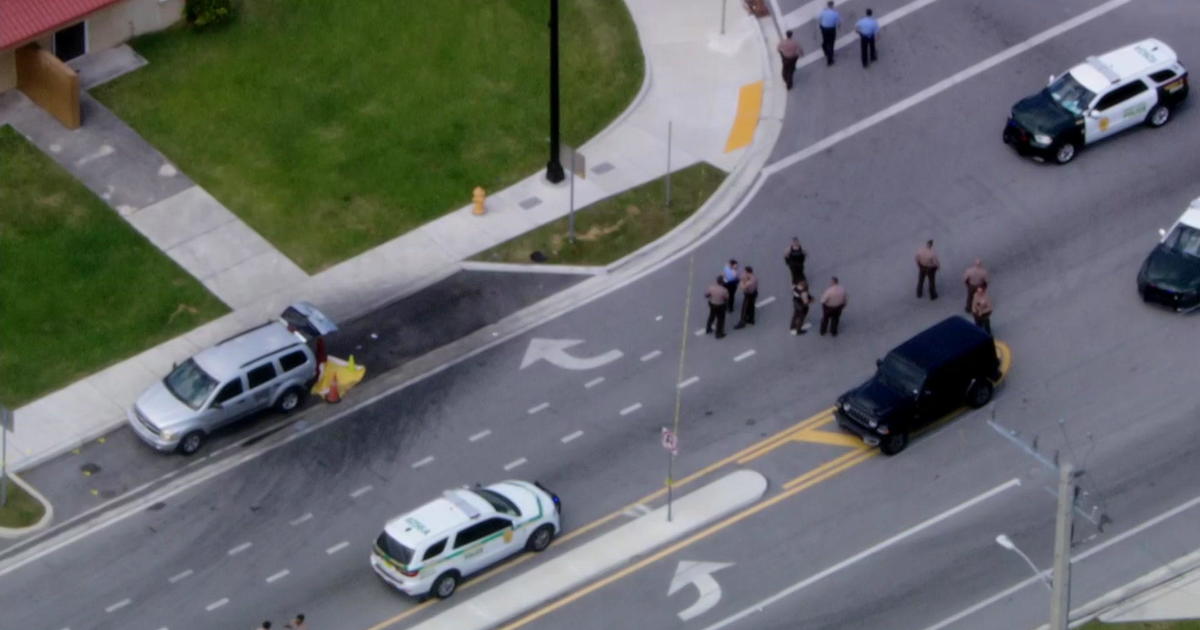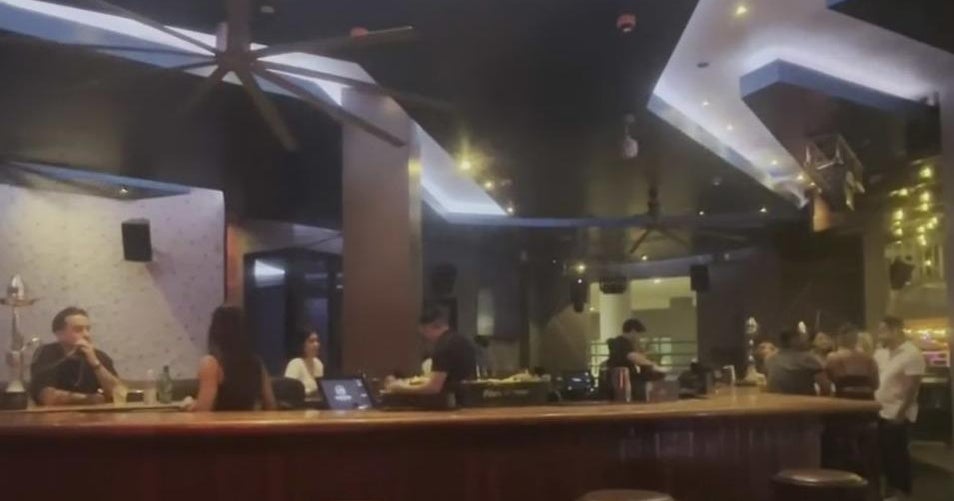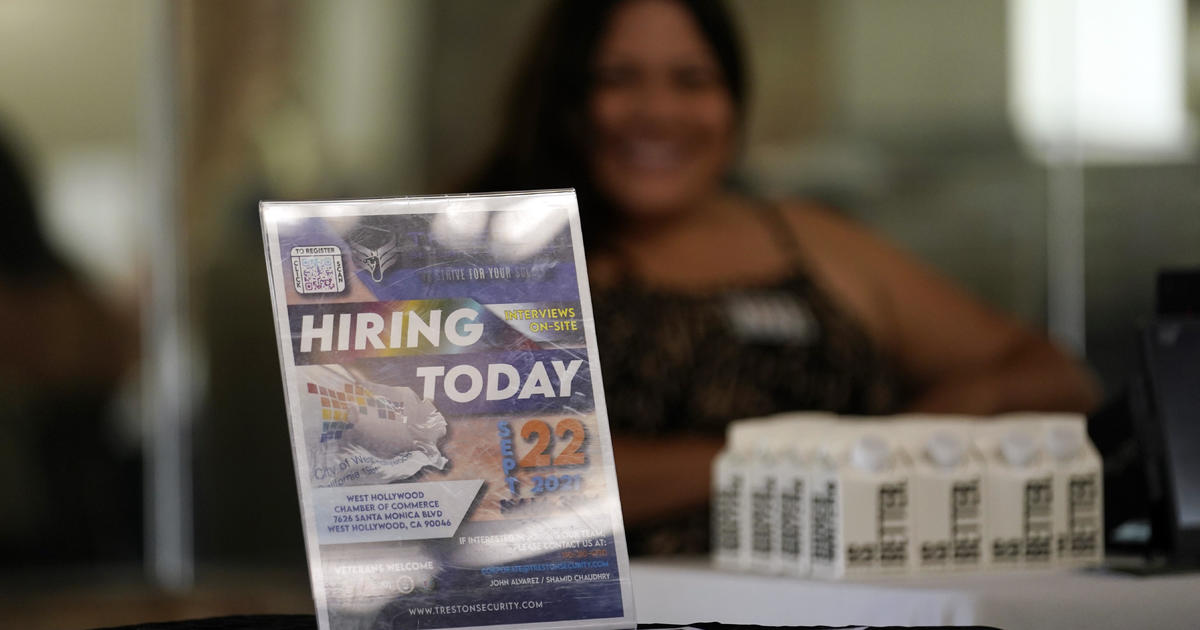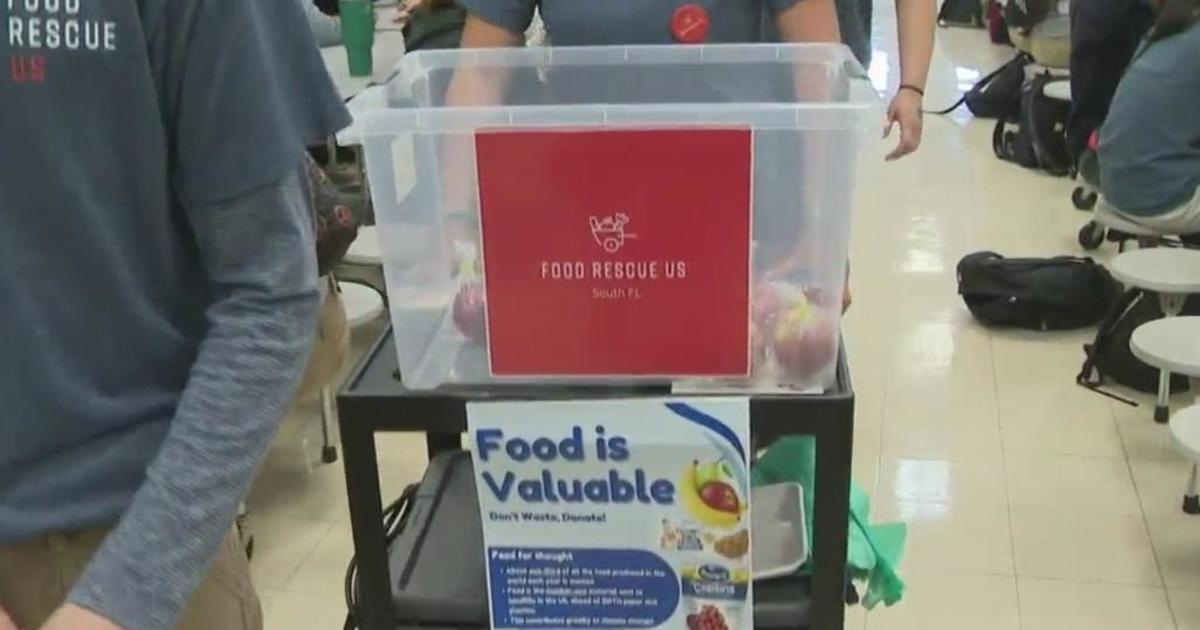FIU PD Capt. Delrish Moss: Starting The Conversation On Police Reform Is The First Step To Change
MIAMI (CBSMiami) – FIU Police Department Capt. Delrish Moss joined CBS4 News Wednesday evening to discuss the calls for police reform across the nation.
Moss was a former Miami police officer and the former police chief of Ferguson, Missouri. He served there in the wake of the controversial police shooting death of Michael Brown.
Q: First off, it's apparent that there is a problem with policing in this country, captain. Now, we see the efforts from the local level all the way up to the federal level. What in your mind is the first step forward?
A: Well, I think one of the first steps forward is the fact that we're having this conversation. From the fact that the president signed an executive order to the fact that Congress is actually debating this. To the fact that police chiefs all over the country are looking at their policies and procedures. I think that we see forward movement. We just don't know what the end goal, what the end destination is yet.
Q: As the chief in Ferguson, Missouri, what did you do there to establish trust between police in the community after the violence that the entire nation saw from that city?
A: Well, one of the first things that we did there was we actually we started by going door to door and talking to the community, trying to get their buy-in. What they need from us. What they expect from us. One of the things I say all the time is that we police at the pleasure of the people, and the people have to put those priorities and demands on us, and we act accordingly. This is about service, not protect and serve, but actually serve and protect.
Q: A lot of agencies say that they're going to be focusing on training, specifically on racial bias training. A lot of departments, though, already offer that to officers. Do you think that those programs go far enough to the root of the issue? Or do we really need more black police officers out on the force?
A: Well, I think all of those things are the case. I mean, we need more training, training is how we move forward, we have to train our police officers. So there's always a need for more training, more extensive training and training that works. One of the things we also have to be able to do is look at that training and see the measurements. How, you know, what the real progress is, not just training for training sake. Do we need a more diverse police force? I think police departments should be reflective of the community serve. Because there are a number of things, cultural nuances that only people from a certain culture will understand. So it's always good to be reflective of the community.
Q: Give us some insight into this issue of qualified immunity. Why is it such a sticking point where Sen. Tim Scott said it would be a poison pill and it would be a deal breaker?
A: Well, the issue with qualified immunity really has to do with violation of clearly established rules – things that are clearly established policy and law violations. The issue though becomes is it something we want to overhaul? Is it something we want to look at or is it something we want to outright scrap? Because I believe that there's also a downside to that and part of the downside is to create hesitation in police officers to basically make them less likely to engage because of their fear of losing their job. I think in critical moments, we want to be thinking about the job, we want to be thinking about doing it the right way. We don't want to think about the what-ifs, necessarily.
Q: A few days ago, the former police chief for Miami Beach wrote in a national op-ed. He discussed sort of the issues that he has a chief at various different departments had with the police unions that he was trying to work with, and that really hindered his ability to reprimand or to discipline officers. Do you think that police unions are sometimes causing more harm than good in these situations?
A: Well, I think police union can't be an excuse for leadership not to make decisions. I think that, you know, the union's job is to make the best decisions it can and to fight for its membership. It is to negotiate for salaries and benefits. So those things, those things are good. Are there problems? I think there can sometimes be. And I think that one of the things we can't do is allow unions to stop us from doing the things that we need to do as leaders.
Q: Relationships are a two-way street as you well know. What can communities do to get along better with the police? We've heard what police departments can do, what can communities do?
A: So relationships are a two-way street. And certainly communities can be more receptive of police, police departments that come out and try to build those relationships. But at the end of the day, we are the servants of the people, and so the onus is on us to work to build those relationships and to work to build trust. I think that us as an arm of government, it always falls to us to be the initiators, the people out doing the work. The communities will receive that at their own when they start to trust that we're making a good faith effort.
Q: Do you think this current climate is actually going to discourage young people from going into law enforcement and hurting morale against current police officers?
A: Well, I think this is certainly going to be difficult for recruitment. I mean, the image of policing right now is just not optimal. And so people are less likely to want to do this job if they're on the fence. But those people who really want to be police officers, who've had this as a lifelong dream or passion, or who really want to serve the community, they're still going to step up. Recruitment will be difficult, but it won't be impossible.



